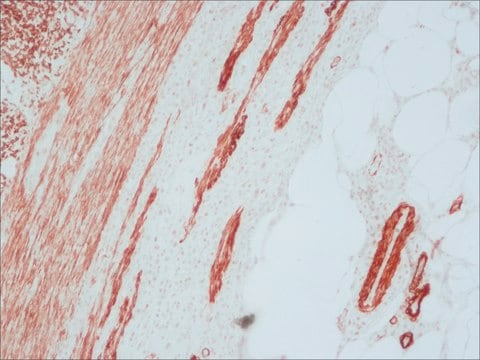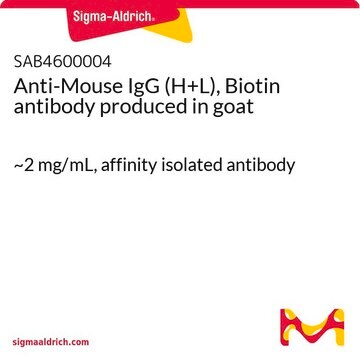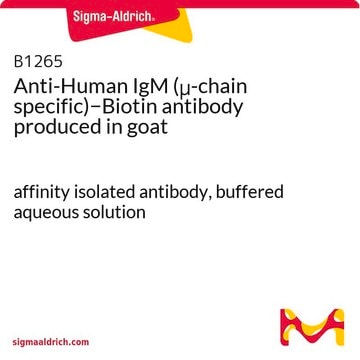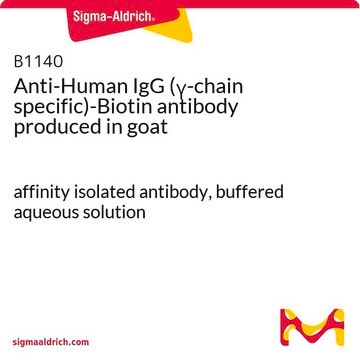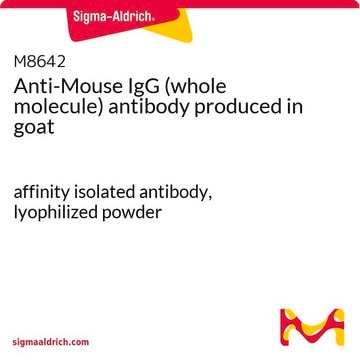B7401
Anti-Mouse IgG (Fc specific)–Biotin antibody produced in goat
affinity isolated antibody, buffered aqueous solution
Sinónimos:
Goat Anti-Mouse IgG
About This Item
Productos recomendados
biological source
goat
Quality Level
conjugate
biotin conjugate
antibody form
affinity isolated antibody
antibody product type
secondary antibodies
clone
polyclonal
form
buffered aqueous solution
technique(s)
direct ELISA: 1:160,000
immunohistochemistry (formalin-fixed, paraffin-embedded sections): 1:400
western blot (chemiluminescent): 1:300,000 using total cell extract of HeLa cells (5-10 μg/well)
storage temp.
−20°C
target post-translational modification
unmodified
¿Está buscando productos similares? Visita Guía de comparación de productos
General description
Biotin:avidin second antibody signal systems involve the conjugation of biotin to a secondary antibody. Once the secondary antibody binds to a target primary antibody in an immunochemical assay, the signal is developed by allowing avidin which has been conjugated to an enzyme or signal molecule to bind to the antibody associated biotin molecule.
Application
Other Notes
Physical form
Preparation Note
Disclaimer
¿No encuentra el producto adecuado?
Pruebe nuestro Herramienta de selección de productos.
Storage Class
12 - Non Combustible Liquids
wgk_germany
nwg
flash_point_f
Not applicable
flash_point_c
Not applicable
Certificados de análisis (COA)
Busque Certificados de análisis (COA) introduciendo el número de lote del producto. Los números de lote se encuentran en la etiqueta del producto después de las palabras «Lot» o «Batch»
¿Ya tiene este producto?
Encuentre la documentación para los productos que ha comprado recientemente en la Biblioteca de documentos.
Los clientes también vieron
Nuestro equipo de científicos tiene experiencia en todas las áreas de investigación: Ciencias de la vida, Ciencia de los materiales, Síntesis química, Cromatografía, Analítica y muchas otras.
Póngase en contacto con el Servicio técnico

